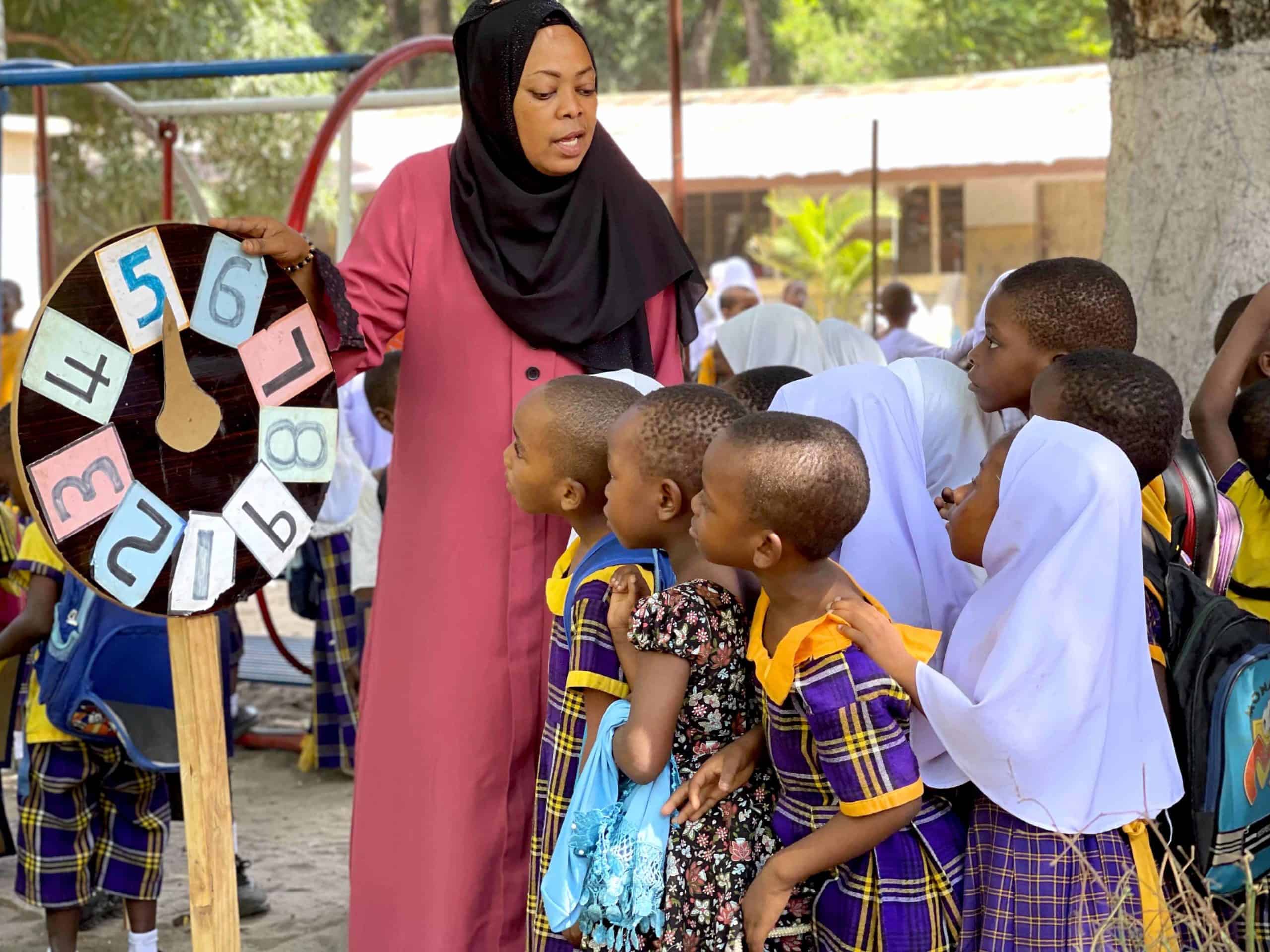Back in 2018, Mwajuma Mlezi was an enthusiastic primary school teacher in Dar es Salaam, Tanzania. Teaching Kiswahili, English, and Science to older students, she was familiar with structured lessons and the rigors of exam preparation. The idea of teaching pre-primary children never crossed her mind, until a day that changed her career.
One morning, Mwajuma was summoned to her headteacher’s office. Due to an unexpected vacancy, the administration decided she would now teach pre-primary classes at Mbande School. Untrained in early childhood education and unprepared for the change, she felt both confused and frustrated. Pre-primary teaching was a realm she hadn’t explored, and it felt daunting. With little choice, Mwajuma accepted her new role but entered her classroom each day feeling lost. Classroom management was a challenge, and without proper teaching materials, the learning environment was far from engaging. Attendance and performance among her young students reflected these struggles.
The Turning Point: Schools2030 and Human-Centred Design
Through the Schools2030 project in Tanzania, teachers, including Mwajuma, were invited to join workshops that used Human-Centred Design (HCD) to develop innovative teaching practices. Despite her initial reservations, Mwajuma participated with an open mind. The training sessions on creating teaching and learning materials and managing early childhood classrooms sparked her interest. Gradually, her mindset shifted, and she discovered a real passion for teaching young children.
Armed with her newfound skills, Mwajuma immersed herself in designing materials tailored to her students’ needs. She embraced the HCD approach, focusing on inclusivity and child-centred methods. Her classroom was transformed. She turned everyday items into effective learning tools, and her community of practice with fellow teachers collaborated to improve early childhood education and became a source of inspiration and continuous growth.
“My pupils have embraced the programme so well, they now find it fun being in the classroom and attending school. They are also grasping concepts so well. Techniques learnt in the programme have also made it easy for us teachers to simplify the learning process, as the learners now understand easily and gain lasting memory, as they can see, touch and explore the teaching aids.”
Mwajuma Mlezi, Pre-Primary Teacher at Mbande Primary school
Building a Collaborative Community
Mwajuma’s dedication to building a supportive learning environment has reached far beyond her own classroom. Recognising the power of shared knowledge, she has opened her doors to fellow educators from across the Temeke district. To date, Mwajuma has hosted three visits from teachers eager to learn from her approaches. These teachers observe her classroom in action, gaining insights into effective strategies for managing and engaging pre-primary students.
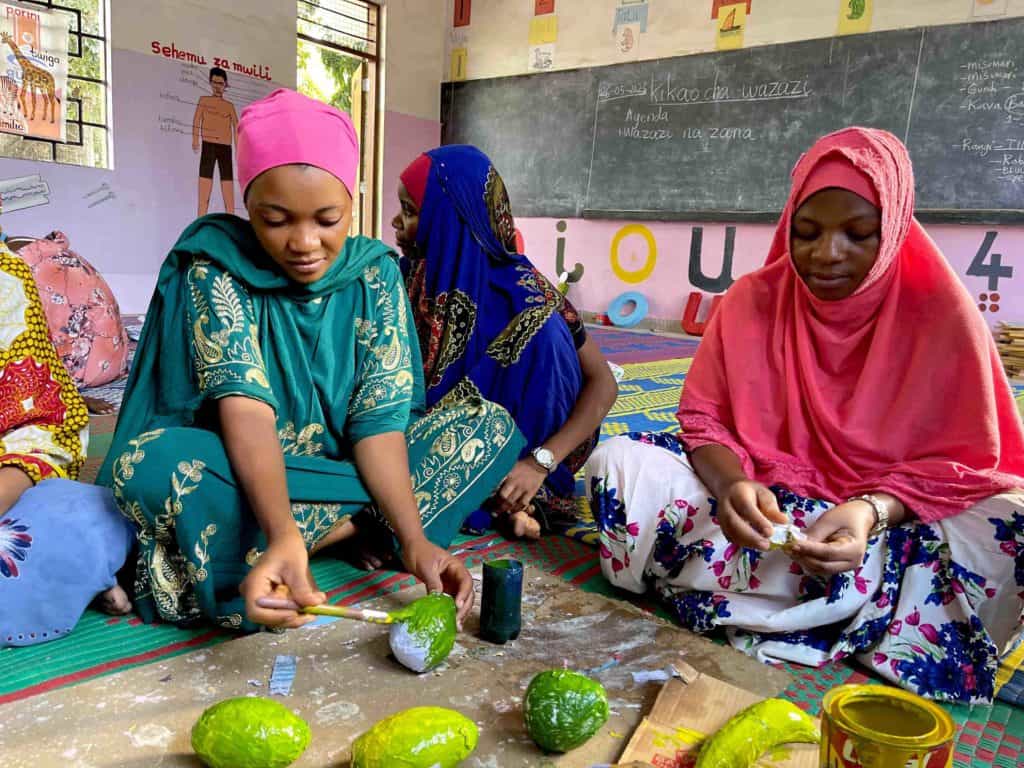
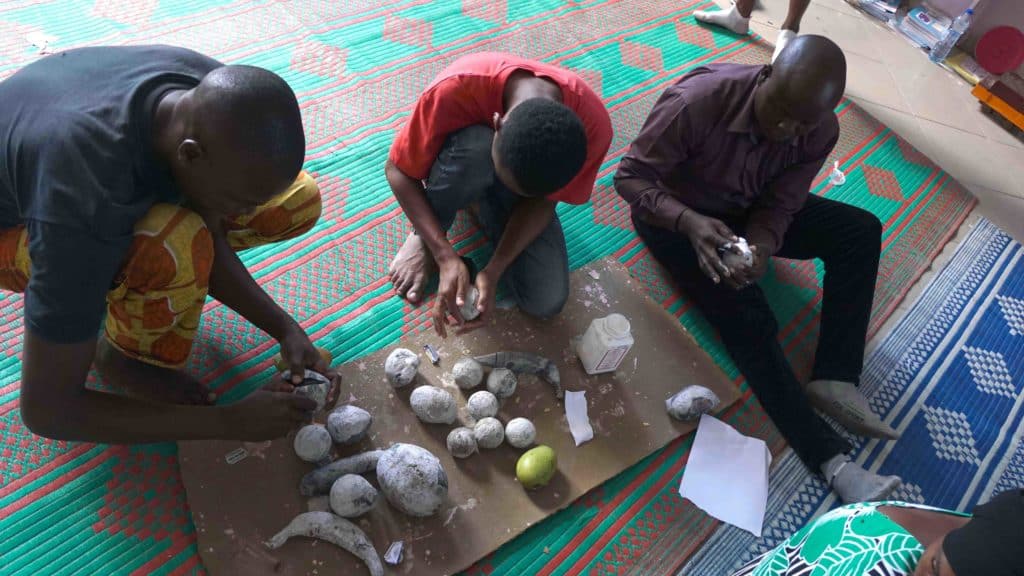
She also organises monthly workshops at Mbande School, where teachers and even parents gather to create and refine teaching and learning materials. Teachers exchange ideas, experiment with new techniques, and support one another in improving their practice.
“When I visited the pre-primary class of Mwajuma Mlezi at Mbande Primary school, I observed and admired the teacher’s creativity in preparing and using learning materials. I have learned to make teaching tools based on the environment.”
Modesta Constantino, Pre- Primary Teacher at Dovya Primary School
Parents, too, are actively involved, contributing to the creation of tools that enrich their children’s educational experience. One parent, Mussa Ahmed Mussa, spoke about how the process of creating learning tools, meeting other parents and collaborating with teachers was enjoyable and fulfilling. He shared that the bond between him and his child has been strengthened greatly by the experience.
“I had no experience at all in making educational tools, but when I met other parents in pre-primary tools development sessions, I learned a lot. Now, I can create learning tools not only for use at school but also at home.”
Mussa Ahmed Mussa, Parent of Mussa Ahmed (Pre-primary class)
This initiative has improved the school’s teaching resources and strengthened the relationships between families and the school. As a result, class attendance soared from 75% to 100%, and children began enjoying school more than ever. Performance data showed remarkable improvements, too. Assessments revealed that children’s skills in literacy, numeracy, creativity, and relationship-building increased by 25%, with overall performance climbing from 60% to 85%.
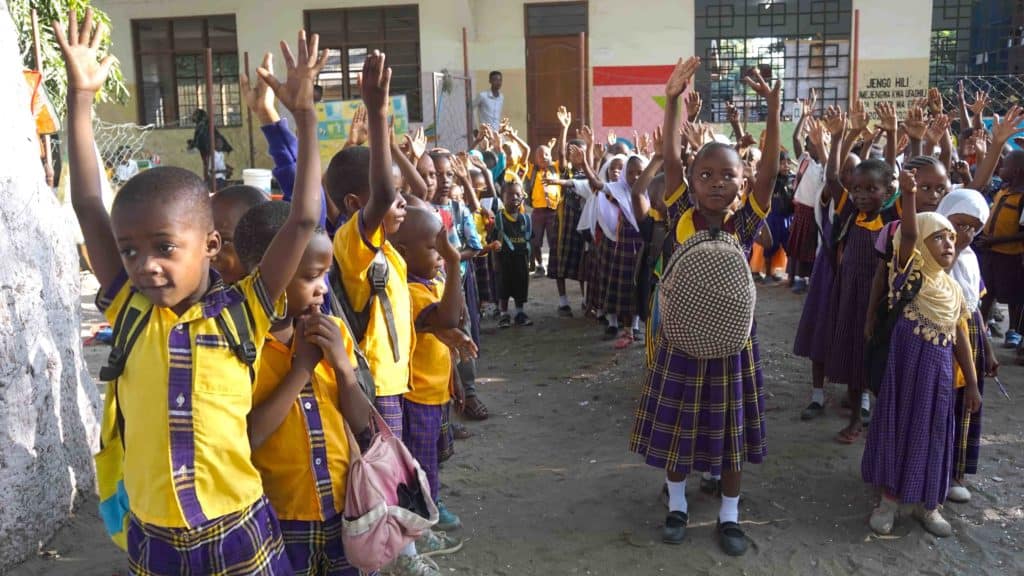
Recognition and Leadership
Mwajuma’s dedication did not go unnoticed. The Temeke Municipal Education Office recognised her as a champion pre-primary teacher. During a special 3Rs (Reading, Writing, and Arithmetic) celebration, she was honoured for her contributions and appointed head of the 3Rs department at her school. As a leader in the teacher’s continuous professional development programme, Mwajuma now mentors’ other educators, helping them adopt effective practices in their classrooms.
In 2023, Mwajuma’s impact earned her an invitation to represent Schools2030 Tanzania at the Global Forum in Porto where she shared insights from her work with fellow educators, youth, government officials and other education-based stakeholders. The Aga Khan Foundation also presented her with a trophy for her innovative parental engagement project, which has become a model for other schools in the area.
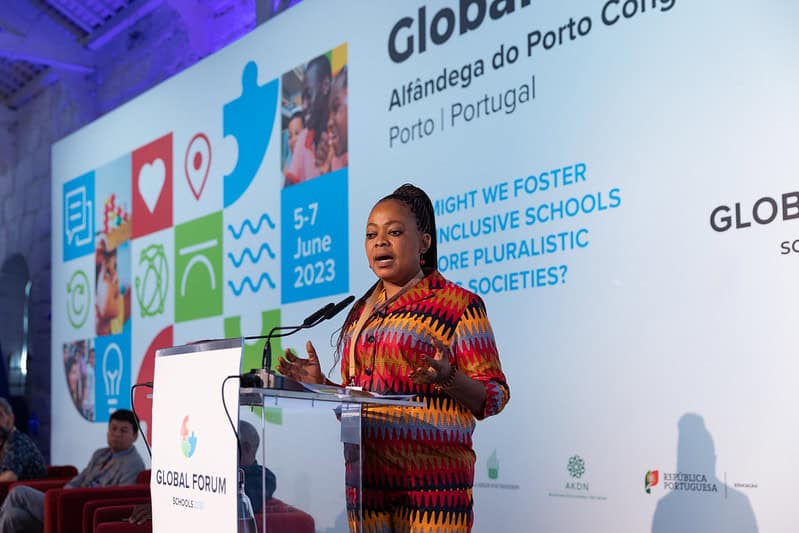
A Legacy of Passion and Innovation
Today, Mwajuma’s classroom is a vibrant, engaging space filled with over 112 handmade teaching materials. She hosts other teachers from different districts who come to learn from her approach, and she organises monthly workshops to develop new educational tools. Mwajuma even sells some of these resources to neighbouring schools, using the funds to sustain and expand her projects.
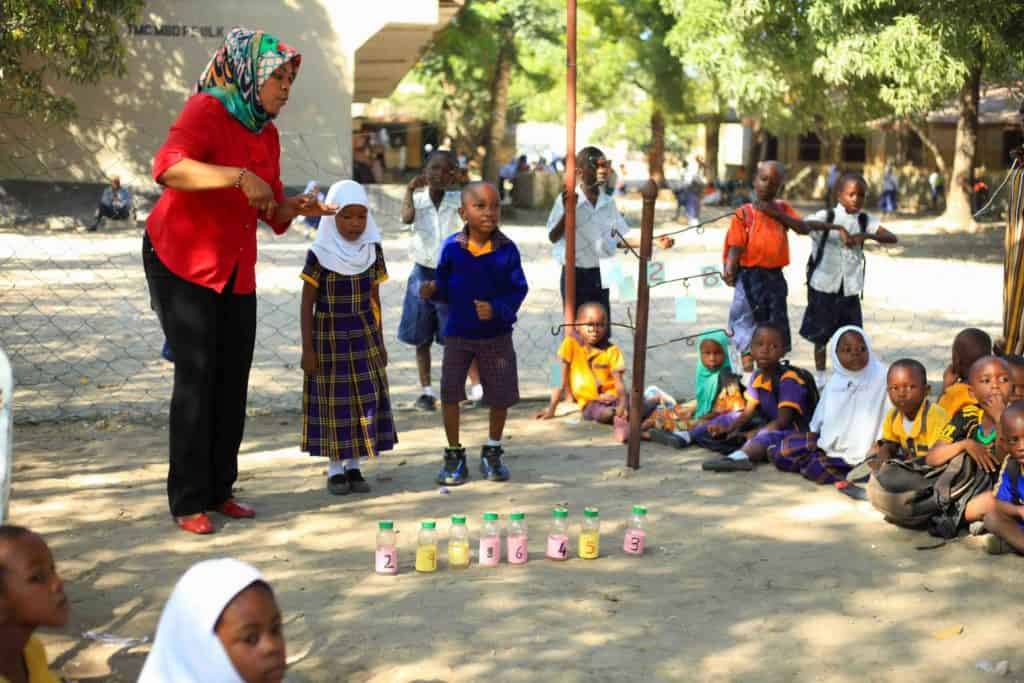
Reflecting on her journey, Mwajuma feels a deep love for pre-primary education, a role she once never wanted.
“We have developed at least 112 teaching and learning materials, arranged them into learning corners in my class, and now my class is fully equipped,” she shared with pride.
Mwajuma’s story speaks to the importance of providing teachers with the skills, space and agency to become education innovators. Through human-centred design and peer learning, she has transformed herself as a teacher – and delivered transformative change to a generation of young people. By embracing new ideas with passion and sharing her learnings, she has not only become a champion teacher but also a beacon of inspiration for her peers.
